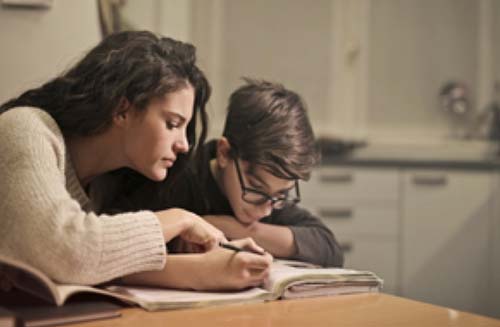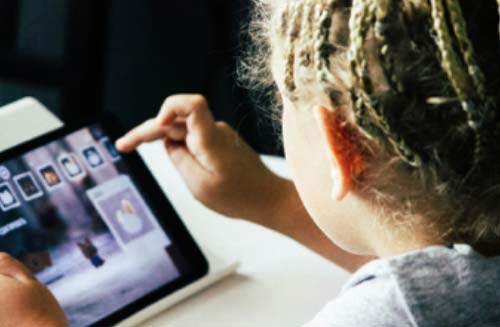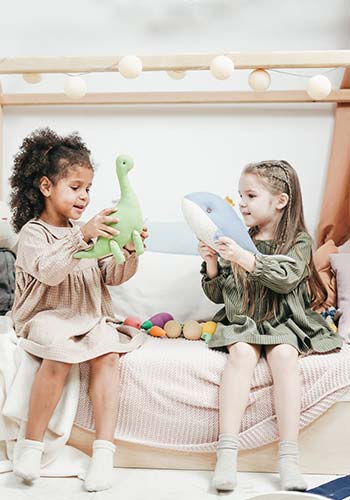‘I’m bored’
Many of us have spent the last few weeks juggling home schooling, attempting to keep the house tidy, trying to work, whilst all the time worrying about what’s going on in the outside world. When children say they’re bored after we have spent hours creating interesting activities and unused toys are spilling out of cupboards it’s tempting to get very cross and to snap; ‘Only boring people say they’re bored’ – a phrase with which some of us may be familiar from our own childhoods.
Why don’t children play when they say they are bored?

Research indicates that parents feel pressure to focus on academic learning (e.g Belfield & Garcia, 2014). During lockdown it may have been satisfying to have guided our children through their schoolwork, but it is also likely that many of us have allowed our children extended time with some sort of electronics.

Neither activity is wrong – providing and overseeing structured activities promotes learning, while letting children use electronics provides necessary respite. Both activities, however, do have something in common in that they do not require a child to look to their own resources and lead their own play.
The benefits of play to a child’s development has been well documented. In 2019, The Division of Educational and Child Psychology created a position paper on the subject entitled, ’Children’s right to play’. The paper makes reference to the work of Mannello, Casey and Atkinson (2019) and states, ‘The importance of children being able to play without intrusive adult controls or structure has been recognised as an important factor in promoting lifelong attributes such as resilience and flexibility and the development and maintenance of children’s social relationships’
When children say, ‘I’m bored’, in part what they mean is ‘provide activities or entertainment’. With the research in mind, how can we gently push children to be more independent in entertaining themselves?
Encouraging child led play
In our house, like any other, we had to first recognise that we had fallen into the pattern of providing activities and entertainment. Next, we had to consciously resist directing the children. This is a snapshot of how it went…

Child A; We’re bored. What can we do?
Adult; Why don’t you go and play?
Child B; We haven’t got anything to play with
Adult; You’ve got loads of toys
Child C; But we’ve played with them
Adult; Why don’t you make up a game?
Child; A,B,C We don’t know what game to play, …we want you to play a game with us… X won’t play with me.
Preventing an exasperated partner from giving in and getting out all the craft kits while also sticking to the ‘no electronics rule’ took some patience. However, the play that gradually emerged was worth the wait. The children, with much moaning and sulking, went into the garden and eventually a game they called ‘hotels’ emerged. They have very rarely stayed in a hotel, so the game was fascinating to watch. A garden chair was reclined and a blanket laid over it for a bed, chairs were placed around a small table and leaves and grass became food items for the cafe, a ruler (which had ‘accidentally’ snapped in half) became some kind of hairdressing tool for the ‘salon’.
The children collaborated, different roles were acted out, very few resources were needed but they used their imagination. Even more helpfully, they spent an hour engaged in the game – give or take the occasional argument. Encouraging them to be independent and engage in child led play was definitely worthwhile.
What could you do next time you hear the words ‘I’m bored’?
- Consider whether you may have fallen into the pattern of providing activities and entertainment.
- Think about the value of child led play to development.
- Take the opportunity to push children (including only children) to think for themselves – even though this might feel uncomfortable.
- Don’t feel as though you are not giving your child attention – remember that you are supporting your child to be flexible, resilient and creative.

